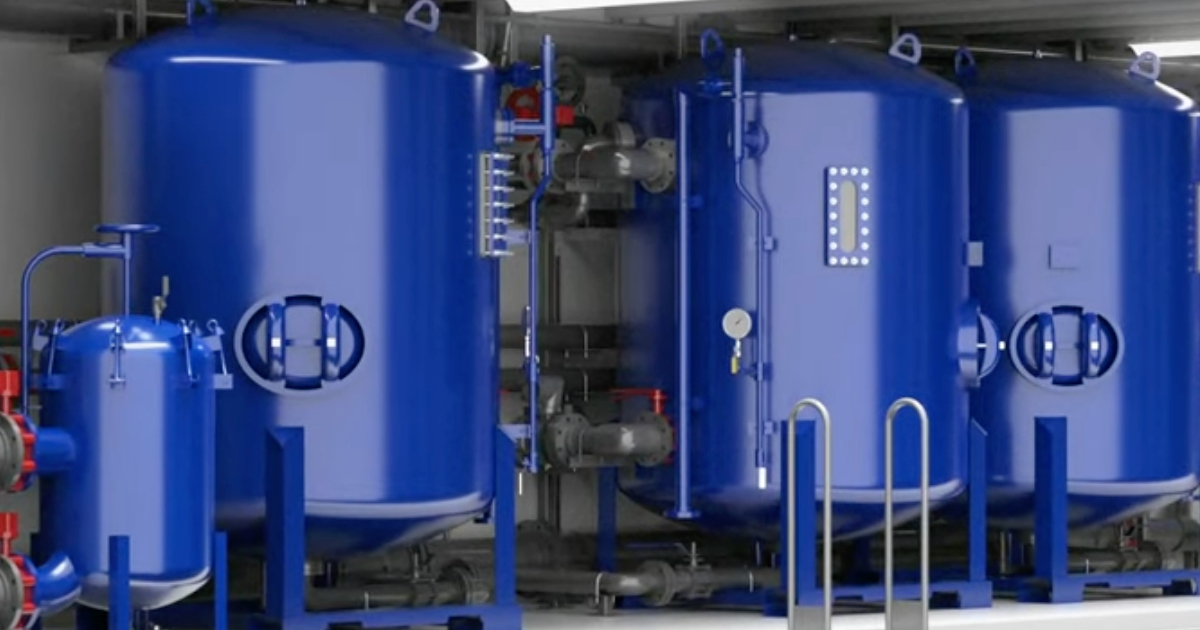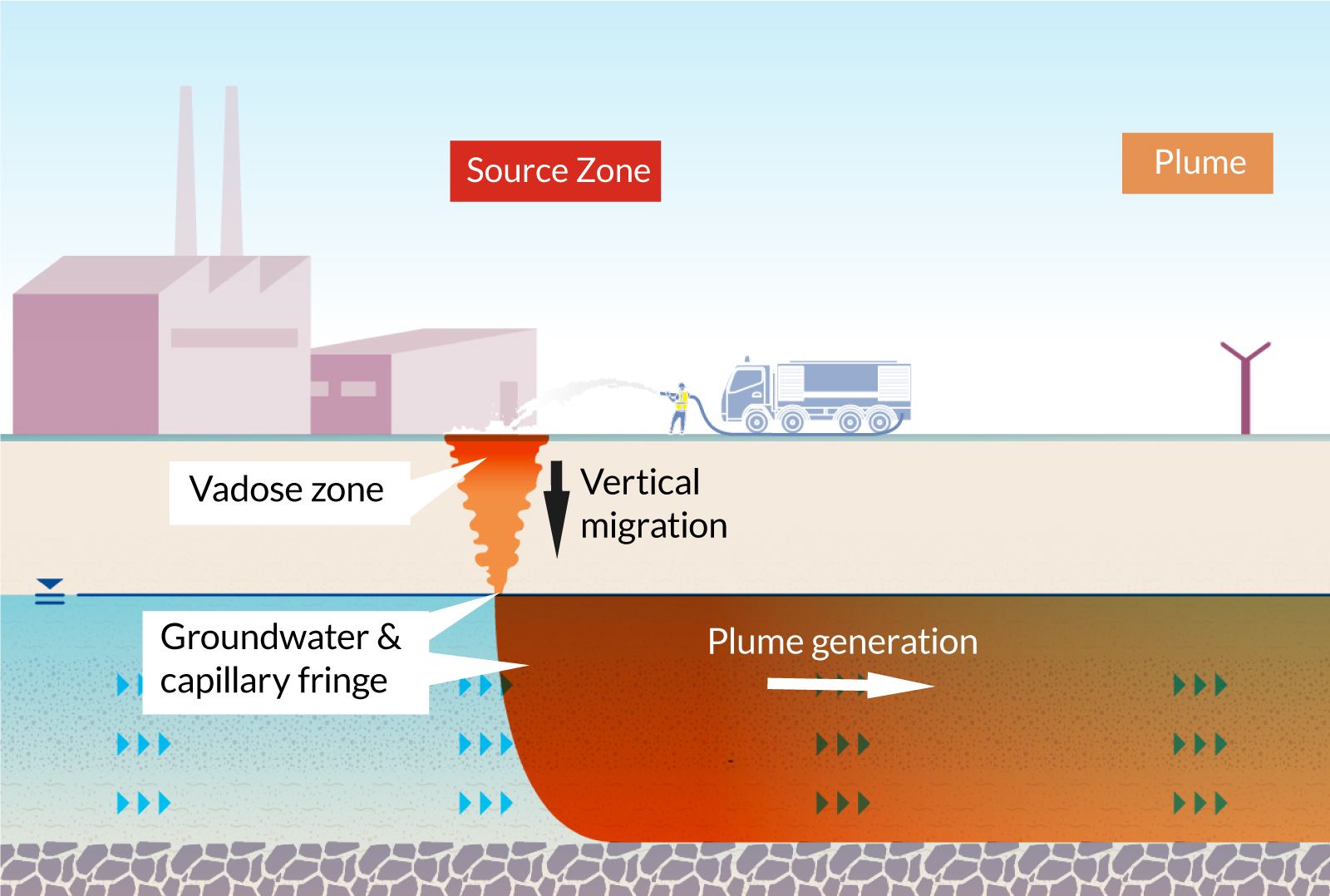The Importance of PFAS Treatment in Cleaning Polluted Water
The Importance of PFAS Treatment in Cleaning Polluted Water
Blog Article
Exactly How PFAS Treatment Ensures Tidy and Lasting Water
The presence of PFAS, frequently recognized as "forever chemicals," postures significant challenges to water high quality and public health. The implications of these therapies extend past instant health advantages; they raise important concerns about long-term water management approaches that should be dealt with to guarantee a resilient future.

Comprehending PFAS Contamination
PFAS, or per- and polyfluoroalkyl compounds, have emerged as a significant ecological issue due to their prevalent occurrence and persistence in the setting. These synthetic chemicals have been utilized in different commercial applications and consumer items, including non-stick pots and pans, water-proof apparel, and food packaging, due to their special residential properties such as water and grease resistance.
The contamination of dirt and water resources by PFAS occurs largely with industrial discharges, firefighting foam use, and leaching from garbage dumps. pfas management. Once launched, these compounds are resistant to deterioration, bring about their build-up in the setting. This determination elevates important problems, as PFAS can take a trip long distances through groundwater and surface area water systems, affecting drinking water materials and environments

Health Threats of PFAS
The determination of PFAS in the environment increases significant wellness worries for people revealed to these substances. Referred to as "forever chemicals," PFAS do not break down quickly and can build up in human bodies over time. Research study has linked PFAS exposure to numerous damaging wellness results, consisting of body immune system dysfunction, liver damage, and enhanced risk of certain cancers cells - pfas management. Notably, studies have actually shown elevated cholesterol levels and potential influence on reproductive and developing health, specifically in pregnant people and infants.
The universality of PFAS in consumer products, such as non-stick cookware, water-repellent fabrics, and food packaging, additional amplifies the threat of exposure. Drinking water polluted with PFAS is a substantial worry, as these chemicals can leach right into groundwater sources. Susceptible populaces, including kids and those living near commercial sites, might deal with increased risks because of their developing systems and prospective for higher exposure levels.
As awareness of these health and wellness dangers remains to grow, regulative agencies are starting to develop guidelines for PFAS levels in alcohol consumption water. Public wellness efforts are necessary to alleviate exposure and safeguard neighborhoods from the lasting effects of these harmful substances.

Cutting-edge Treatment Technologies
Just how can we effectively tackle the obstacles posed by PFAS contamination in water sources? Ingenious treatment technologies are becoming important options in the mission for tidy water. These methods concentrate on the removal or damage of per- and polyfluoroalkyl substances (PFAS), which are infamous for their persistence in the environment.
One promising method is adsorption using advanced materials, such as turned on carbon and ion exchange resins. These materials have revealed efficiency in catching PFAS molecules from water. An additional noteworthy modern technology is membrane purification, which uses nanofiltration and reverse osmosis to separate contaminants at the molecular level, thus offering an obstacle against PFAS.
Furthermore, advanced oxidation procedures (AOPs) use strong oxidants to break down PFAS compounds into safe results. This approach is particularly reliable for treating extremely contaminated water sources. Bioremediation methods, employing certain microorganisms, are likewise being explored to weaken PFAS.
As research proceeds, crossbreed systems that incorporate numerous innovations may offer enhanced performance, resolving the complexities of PFAS contamination. The a fantastic read development and execution of these ingenious treatment modern technologies are crucial actions towards guaranteeing the safety and sustainability of our water resources.
Advantages of Efficient PFAS Therapy
Efficiently treating PFAS contamination in water sources dramatically improves public wellness and environmental security. PFAS, usually referred to as "forever chemicals," are immune to deterioration and can collect in the human body, bring about major health and wellness dangers such as cancer cells, liver damage, and immune system disorder. By implementing efficient treatment approaches, areas can decrease direct exposure to these hazardous compounds, inevitably improving the health and wellness outcomes of their populations.
In addition, successful PFAS therapy contributes to the conservation of regional ecosystems. Contaminated water can detrimentally affect marine life and interfere with the delicate balance of local habitats. By making certain clean water, therapy procedures secure biodiversity and maintain ecological honesty.
In addition, effective PFAS removal can cultivate public confidence in water quality. When communities are assured that their alcohol consumption water is complimentary from damaging contaminants, it promotes a sense of safety and well-being. This count on is essential for area engagement and assistance for recurring water administration efforts.
Future of Water Sustainability
Amidst expanding issues concerning water quality and scarcity, the future of water sustainability rests on ingenious strategies and collective initiatives. As areas face the impending risks of contaminants like PFAS, the development of sophisticated treatment modern technologies is essential. These modern technologies not just concentrate on the removal of unsafe substances yet additionally advertise the reuse and recycling of water, thus decreasing overall demand.
In addition, reliable water administration plays an important role in ensuring sustainable methods. Policymakers must incorporate clinical research study with regulatory structures to establish clear guidelines for water use and therapy. Stakeholder involvement, including neighborhood communities and industries, cultivates a sense of shared responsibility and motivates sustainable methods across various sectors.
Investment in framework is likewise critical; upgrading aging systems to include contemporary filtering and purification approaches can dramatically boost water high quality. Furthermore, welcoming environment-friendly technologies, such as natural filtering systems, can offer green remedies.
Ultimately, the future of water sustainability lies in an alternative approach that incorporates technology, plan, and area participation. By prioritizing these elements, we can safeguard our water resources for generations to come, ensuring tidy and sustainable water for all.
Final Thought
Finally, the reliable therapy of PFAS is vital for making sure tidy and lasting water. By utilizing innovative modern technologies such as turned on carbon go to my blog adsorption, membrane filtration, and advanced oxidation procedures, communities can dramatically minimize the health and wellness dangers associated with these contaminants. Moreover, the combination of these treatment approaches sustains ecosystem security and boosts biodiversity. Ultimately, robust PFAS treatment methods add to long-lasting resilience in water administration, promoting public count on water top quality and promoting view it sustainable methods.
Report this page